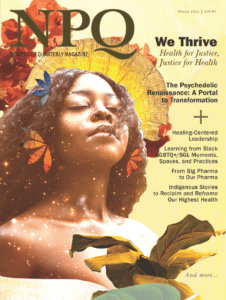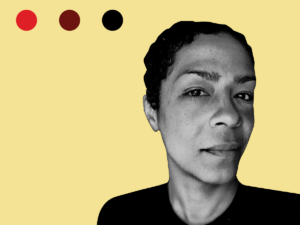
My story is not unique. I am a single mom of two beautiful girls—a teenager and a pre-teen. I’ve worked in marketing for almost 15 years. I like to travel. I write poetry. I enjoy photography. I love my family, my friends, and my life.
I’m also a survivor of domestic violence. This is my story of finding hope and finding help.
When I first met him, he was cool, free-spirited, and artistic. He was funny and witty. Charming. Around friends or strangers, he was always fun and entertaining, the life of the party. He seemed empathetic and more emotionally expressive than most of the men I had encountered at that point in my life. He was different, and I was drawn to him.
We met my freshman year in college and became friends. A few months after meeting and getting to know each other, our relationship took a romantic turn.
Those early days were confusing. He would be complimentary and then critical; loving, and yet distant. There were days he seemed to love me and wanted to be around me, and there were times when he would disappear for days on end without responding to any communication. Then he would resurface, and things would be fine, before he disappeared again.
A few months into dating was the first time I felt something was “off” about our relationship. I was dreadfully sick with the flu, and I was not up to going out or having anyone come over. He called me up one afternoon, asking if he could visit. I told him I was very sick and apologized for not being up to it, but he kept trying to talk me into it. He made up different reasons for why he needed to come by, like asking if he could sell me some incense, which he did sometimes to make money. I didn’t have much money at that point, so I told him I couldn’t really buy anything, either. He continued pushing back, but I stood my ground.
Suddenly, he turned on me. He yelled at me for wasting his time and for not helping him out by buying something. He ended up hanging up on me. I felt like I had let him down or done something wrong, but I also was annoyed that he got so angry at me when I was sick. That annoyance kept me from calling him or trying to make the situation right.
He eventually called me back and apologized for how he had acted, justifying himself by saying he just needed money and was worried about that. I forgave him, and we moved on. But that was the first time he showed me his temper—the first time I felt the alarms I would eventually grow to ignore.
As our relationship developed, I felt him trying to separate me from the people I knew and loved. He would always tell me my family and friends were stifling me and not allowing me to be myself. He was good at picking up on threads of possible conflict between people and magnifying it to his benefit. If he could put a wedge in a relationship, he could put himself in the middle as support. But I never let him fully cut me off from those in my life, which helped me avoid becoming isolated as time went on.
He was blindingly mean with his words. They hurt worse than any hitting, punching, choking, slapping, or anything else he ever did to me physically. Once he knew what hurt you emotionally, he was calculating in how he attacked you to maximize the damage. It was like adding acid to the edge of a sword—wholly unnecessary and designed to cripple you twice over. I grew calluses over some of the places he attacked verbally and emotionally, but that just drove him to find new ways to unearth the pain. He seemed to enjoy breaking me down with his words, and when he couldn’t, he got his hands involved.
By the time it got physical three years in, I was relieved. That’s something I’ve also heard a few survivors say. The physical violence finally made all the verbal abuse make sense. I could finally feel how much he hated me. It felt honest. With his words, he could manipulate things as not meaning any harm, but his hands were honest with me. I could stop lying to myself about what was happening—it wasn’t just an “anger management” problem, or him losing control of his emotions. When a person attacks you with their hands, the truth is finally out there, undeniably.
We got married over four years into the relationship when I was pregnant with my oldest daughter. By that point, the abuse was in full swing. He still insisted he loved me and wanted to marry me to make sure our child had his last name. He said he didn’t want his child to have a “broken home.” Society promotes two-parent households heavily without regard for what is healthiest for the children, and I bought into that. So, the day my daughter was born, in labor and in my hospital bed, I married him.
To survive, you become emotionally numb, so you can’t be hurt anymore. It’s like living in a shell of yourself. I didn’t socialize at all, really, since I was scared to leave the house. I was always looking over my shoulder, afraid to take any steps to get out because I didn’t want to anger him. I didn’t know what to do next.
Sign up for our free newsletters
Subscribe to NPQ's newsletters to have our top stories delivered directly to your inbox.
By signing up, you agree to our privacy policy and terms of use, and to receive messages from NPQ and our partners.
Then, one day, everything changed. I was leaving the house to run an errand. He was yelling at me for something I hadn’t even done, and he threatened that I wouldn’t be able to get back into our home when I returned. Thankfully, my mother had moved in with us at that point, so he wouldn’t be able to get away with that. When I got back, I realized he had been yelling at my mother while I was gone. A short time after I returned, he threw a book at my mother and started threatening us both. I knew that if he was willing to attack her, we had hit a dangerous new level, and that things needed to end immediately.
While my mother distracted him, I grabbed the phone and ran up to the attic to call 911. He followed me and banged on the locked attic door, trying to get in while I was on the phone. He broke the door open right as I finished the call. Shortly after, two police officers arrived, talked to us briefly, and arrested him. They later told me they had listened briefly outside to verify his behavior before knocking, so that he couldn’t change his behavior in front of them to manipulate the situation—something he had done before.
Because he was charged with a crime when he was arrested, a temporary protection order was automatically put in place. It wasn’t hard to decide to make it more permanent after that.
The first protection order process was a bit of a blur. The local victim assistance program in Akron, Ohio, helped me with some of the process. I remember filling out the paperwork at the courthouse and talking about why I felt I needed protection, citing incidents. I also remember the fear. I was scared that taking a step like that would anger him, but I was more scared of what would happen if I had nothing in place once the 30-day temporary order was gone.
He was very upset that I wanted to renew the protective order. He was so disruptive during the hearing that the judge made him leave and requested that he be watched to ensure he exited the courthouse. She let me remain behind for an hour to give him enough time to be far gone.
I was granted a five-year civil protection order, but he continued trying to contact me. He reached out a few times, and I sent copies of his attempts to the police, and they arrested him. It was at that moment that I decided I really needed to finalize this. I wanted a divorce.
At the time, I was working, but I didn’t have a very good job. I was making just above minimum wage, and I wasn’t able to afford an attorney. I did some research online, and I found Community Legal Aid, so I called and asked for help.
Susan, my attorney, was amazing. With the protection order in place, my ex had to stay on one end of the courthouse, and Susan would run back and forth between us to work out the agreement. She treated me not just like a client; I kind of felt like she was a friend. She kept me focused on what I really needed to do, handled all of the documentation, and prepared me for court. She kept me from being afraid.
Something about being able to get the divorce and make it official just gave me a different sense of confidence. I was able to get better jobs, and I’ve probably doubled my income in that time. I’m living in a better neighborhood. My kids are happy and well adjusted, and I’ve started traveling a little more. I started just trying to get back to myself, not being afraid to take chances on myself. People say, “Everything’s just gotten so much better.” And it really has. Things have just gotten a lot better.
I’m not out of the woods yet. As I’m writing this, I’m working with Community Legal Aid again to renew my protective order, as the five years are coming to an end. I wish these orders could be made permanent. Having to face him in court every five years just to protect myself is traumatizing and painful, and I dread it every time. While it’s only a piece of paper, it’s made me feel secure. At the very least, I know that if something happens to me, the police will know where to start looking. And it makes it known that I don’t want him to be able to come near me to hurt me again. It’s a deterrent, at least in some way. I hope that at least for the next five years, I can continue to live my life and put that chapter behind me.
I also don’t fully know yet the effects this has had on my daughters. It can take years to unravel the effects of abuse on everyone, so the trauma could still impact them in other ways throughout their lives, for which I feel horrible. I know my oldest daughter eventually showed signs toward the end of his time with us—the same “walking on eggshells” behavior that I was doing. If I hadn’t thought my daughters were being affected terribly up to that point, that showed me how much they were. My youngest daughter was really young when he was arrested, so it’s hard to understand how things affected her. She doesn’t remember him, which may be a blessing.
I think it’s important for people to know that I was extremely fortunate. Many women don’t get the chance I got. One of the biggest hurdles to ending a situation like mine is getting legal help to end it. That goes from getting intervention from law enforcement, to getting protection orders, to dissolving a marriage. Some women get out, and they have to run and hide. Some never get a protective order, file for divorce, or get help with the unique custody and visitation issues that arise. Without legal help, I know that my story would not have turned out as well as it did, and I believe that everyone deserves access to the same legal help I received.
At the end of last year, I joined the board of Community Legal Aid as a way to give back to the organization that helped me get my life back and to help advocate for others who have stories similar to mine. I want victims to see that there is both hope and help for them, and I want to encourage others to get involved. To readers out there, whether you are in a situation like I was, or if you know someone who is, please don’t give up. If my story has moved you, reach out to your local shelter or legal aid organization to find out how you can get involved or get assistance. Share this with your family, friends or coworkers, or spread the word on social media. And above all else, be aware. Take notice of people who may be struggling around you, and let them know there is help, and there is hope.
Athena Gough is a marketing professional, a mother of two, and a survivor of domestic violence. Her story and the stories of a number of other legal aid clients are profiled in Securing Stability: Legal Aid’s Lasting Impact, published this year by the Center for Community Solutions in Cleveland, Ohio.









